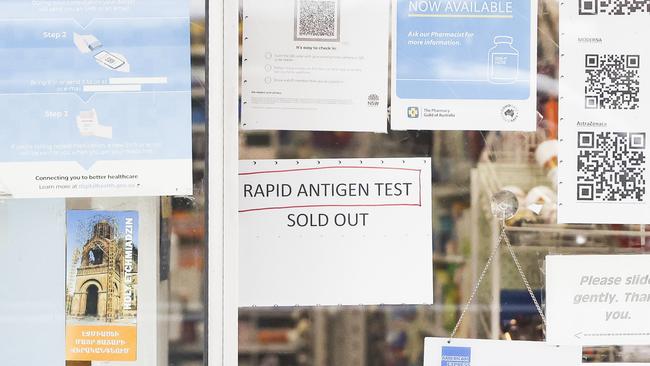
During the pandemic Australia’s health regulator – the Therapeutic Goods Administration – has been often criticised for being slow off the mark, asking too many questions before firing.
Its bureaucratic processes have been blamed for anything from the vaccine rollout lagging behind comparable nations to the current shortage of rapid antigen tests. But as the regulator, its role is to deliver clarity and clean shots. In other words, it has to give Australians the confidence that a product does what it says.
It is a job that requires rigorous analysis, separating those aiming to capitalise on a pandemic that has killed more than 5.6 million worldwide to those genuinely seeking Covid-19’s endgame by producing treatments and products that make it easier to live with the virus.
And as much as Australians are desperate for the TGA to hurry up with approving more rapid antigen test manufacturers, we have also proven to be a flighty bunch. Just look at the hesitancy around the AstraZeneca vaccine, the effectiveness of which was overshadowed by its link to rare blood clots.
It said these tests were still subject to TGA approval, which had “introduced new requirements for suppliers with existing (Australian Register of Therapeutic Goods) listings”.
The TGA, which has launched a post-market review to ensure all rapid Covid-19 tests can detect Omicron and other variants, fired back, saying that Atomo had yet to provide “sufficient primary data” and therefore was not the subject of a review.
Those sympathetic to Atomo argued that if the tests were approved in the US then that should translate to automatic Australian approval. The TGA does consider the findings of its overseas counterparts, stating on its website that “recognising the assessments of other regulators helps us achieve efficient regulation of medical devices”.
But for very high-risk devices, “such as those that include medicines, tissues or cells, the device must be assessed in full by the TGA”. It has already expedited the process, saying “applications relating to … rapid antigen tests are being further prioritised to ensure the needs of health care professionals and the Australian public are met”. Already the approval of self-administered rapid tests has resulted in a compromise: convenience over accuracy.
Before the widespread use of rapid tests, Australia had greater confidence in how many infections were in the community via pathology-based testing.
But with the emergence of the Omicron variant overwhelming pathology centres, rapid tests were essential in keeping the country moving and helping isolate those infected with the virus.
Sure, we need more of them. But they need to work, and the TGA ensures just that. If not, it is the one on the hook.





In the fog of war, it can be easy to shoot first and ask questions later.